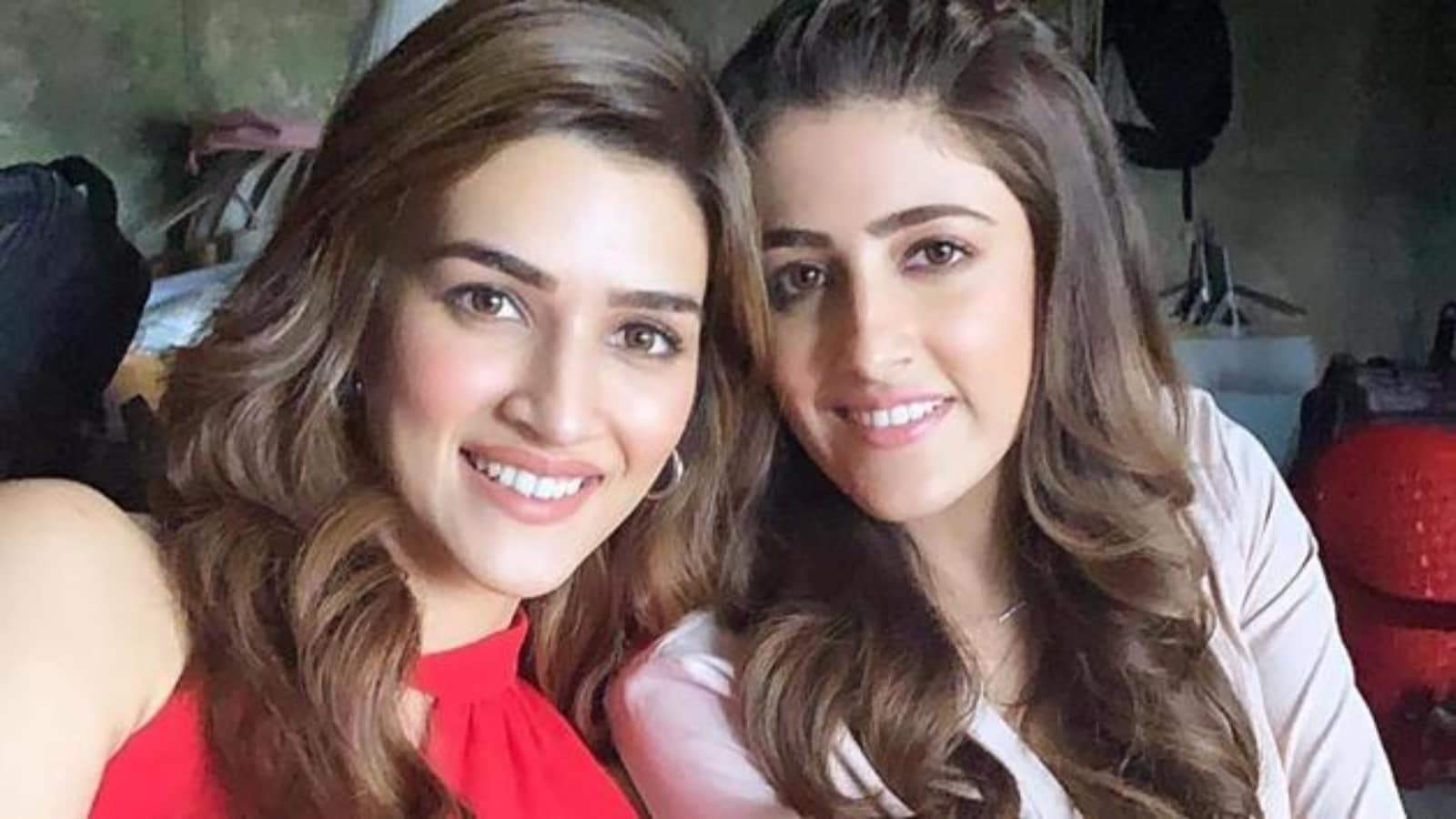Is Nupur Sanon's Fashion Brand Scamming Customers with Rs 27,000 Basics?

Kriti Sanon's Sister Nupur's Brand Faces Backlash for Overpriced 'Basic' Clothing
In today’s fashion landscape, the price of a garment often speaks volumes about its perceived value. However, when a brand crosses the line from premium to exorbitantly priced, it can lead to widespread ridicule and backlash. Recently, Nupur Sanon, sister of Bollywood actress Kriti Sanon, has found herself in the eye of a storm over her fashion brand, Label Nobo. Launched in 2024, the brand is now facing intense scrutiny online, predominantly on Reddit, where users have criticized its pricing for basic clothing items. With the cheapest dress listed around Rs 7,000 and the most expensive kurta set soaring to Rs 26,500, many are questioning the brand's value proposition, igniting a conversation about fast fashion, pricing ethics, and consumer expectations.
The Pricing Controversy: What’s Behind the Backlash?
The crux of the controversy surrounding Label Nobo lies in its pricing strategy. While the brand claims to use “premium high-quality fabrics,” many consumers have taken to social media to express their disbelief at the cost of what they deem to be basic clothing. For instance, the most expensive lehenga on the website is priced at Rs 21,000, while a skirt and crop top set can fetch up to Rs 20,000. In stark contrast, the pricing of items in local markets often hovers around a fraction of these prices, raising questions about what constitutes 'value' in fashion.
The Consumer Perspective
Consumers today are more educated and discerning than ever before. With access to a plethora of options, both online and offline, they are quick to scrutinize pricing, quality, and originality. The backlash against Label Nobo reflects a growing sentiment that many fashion brands are capitalizing on celebrity endorsements without delivering commensurate quality or uniqueness.
- Basic vs. Premium: The line between basic and premium clothing has blurred significantly. Consumers are demanding transparency regarding what justifies high prices.
- Fast Fashion Ethics: The fast fashion industry is often criticized for its impact on the environment and labor practices. Brands that fail to adhere to ethical standards may face backlash.
- Influencer Culture: Many brands rely on celebrity endorsements to drive sales, but this strategy can backfire if consumers feel the products don’t meet expectations.
Label Nobo: Brand Identity and Market Positioning
Label Nobo, which stands for "No Boundaries," was founded with the intent to offer a unique fashion experience. Nupur Sanon, having gained fame through her music videos and acting career, leveraged her celebrity status to attract attention to her brand. The brand's tagline claims to offer high-quality fabrics, yet the disconnect between brand positioning and consumer perception has led to a significant gap in trust.
Celebrity Endorsements: A Double-Edged Sword
Label Nobo has received endorsements from well-known personalities including Kriti Sanon, Uorfi Javed, and Sanjana Sanghi. While this can attract potential customers, it can also set high expectations. If the product does not meet these expectations, it can lead to negative feedback and ridicule. The power of celebrity endorsements lies in their influence; however, if the product falls short, it can tarnish the brand’s reputation.
The Impact of Social Media on Brand Reputation
Social media has transformed the way brands interact with consumers. Platforms like Reddit and Instagram allow for real-time feedback, which can either bolster a brand’s reputation or lead to its downfall. In the case of Label Nobo, the backlash on Reddit has created a ripple effect, prompting discussions about pricing ethics in fashion.
Understanding the Trolling Phenomenon
Trolling, especially in the context of fashion, can be attributed to a variety of factors:
- Consumer Empowerment: Consumers feel empowered to voice their opinions and critique brands, especially when they perceive value discrepancies.
- Viral Culture: Negative comments can quickly go viral, leading to widespread scrutiny and damaging the brand's image.
- Expectation vs. Reality: When a brand promises luxury and delivers mediocrity, the backlash is swift and unforgiving.
Market Comparisons and Local Alternatives
Many users have pointed out that comparable items can be found in local markets at a fraction of the cost. For example, traditional patchwork jackets can be purchased for less than Rs 1,500 in markets such as Rajouri and Chandni Chowk. This has led to discussions about the value of supporting local artisans versus purchasing from celebrity-backed brands.
The Case for Local Markets
There’s a growing trend of consumers opting for local products over celebrity brands. Local markets often provide:
- Affordability: Prices are significantly lower, making fashion accessible to a broader audience.
- Uniqueness: Local artisans often create one-of-a-kind pieces that stand out from mass-produced clothing.
- Support for Local Economies: Purchasing from local markets helps support small businesses and fosters community growth.
Lessons for Emerging Fashion Brands
The backlash faced by Label Nobo serves as a cautionary tale for emerging fashion brands. Here are some key lessons that can be drawn:
1. Understand Your Target Market
Before launching a fashion brand, it’s crucial to understand the target audience. What do they value? What are their spending habits? Conducting thorough market research can guide pricing strategies and product offerings.
2. Transparency is Key
In an age of information, consumers appreciate transparency. Brands should be open about their sourcing, manufacturing processes, and pricing structures to build trust.
3. Quality Over Hype
While celebrity endorsements can attract attention, they cannot substitute for quality. Brands must ensure that their products live up to the promises made in marketing campaigns.
4. Adapt to Feedback
Consumer feedback is invaluable. Brands should be willing to adapt their strategies and offerings based on feedback received from their audience.
Looking Forward: The Future of Fashion Pricing
The conversation surrounding the pricing of fashion items is evolving. As consumers become more conscious of their purchases, brands must adapt to meet new expectations. The backlash against Label Nobo could serve as a catalyst for change in the industry, prompting brands to rethink their pricing strategies and focus on delivering true value.
FAQs
What is Label Nobo?
Label Nobo is a fashion brand founded by Nupur Sanon, sister of actress Kriti Sanon, in 2024. The brand aims to offer premium clothing but has faced criticism for its pricing and quality.
Why is Label Nobo being trolled online?
The brand is being ridiculed for its high prices for basic clothing items, which many consumers feel do not justify the cost.
What alternatives exist to Label Nobo's pricing?
Local markets often provide similar clothing items at much lower prices, allowing consumers to find unique pieces while supporting local artisans.
How can new fashion brands avoid backlash?
Emerging brands can avoid backlash by understanding their target market, being transparent about pricing, focusing on quality, and adapting to consumer feedback.
As the landscape of fashion continues to evolve, the importance of aligning brand values with consumer expectations cannot be overstated. Are we ready for a shift in how we perceive fashion pricing? The future of fashion may just depend on it.
#LabelNobo #FashionControversy #ConsumerRights
Published: 2025-06-16 02:37:14 | Category: Uncategorized



